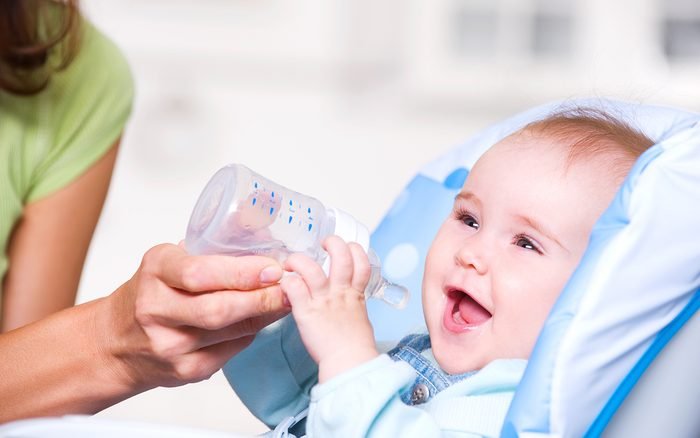
Breastfeeding a baby for six months is sufficient. You should only give breastmilk to the baby. You should give your child water between meals if it is breastfed. Pediatricians recommend that children be given water, along with complementary foods. A baby can be fed water from a bottle if they are not using breastmilk. Breastfeeding a baby should be done with a spoon or cup.
Why to Water a Baby
It is not recommended that children receive anything other than milk in the first three months. There are exceptions. So when should baby drink water
If a child is constipated, you can add water to his diet.
If a baby experiences a high fever for more than a few days, it is important to give them water at room temperature.
Colic can often be a problem in bottle-fed children. In such cases, you may be able to give water to the child, but it is best to consult a pediatrician first.
Jaundice in newborns refers to a condition where the skin and mucous membranes have a yellowish tint. This can happen if the mother and child are of different blood types. You can give your child 1 teaspoon of water per hour to get rid of jaundice.
People who are bottle-fed have more protein so they need to drink more. You cannot limit your water intake in this situation.
How much water should you give your baby?
Tap water should be filtered before you use it. Although such water is allowed by pediatricians, specialty baby water is preferred due to its lower salt content. Because newborns have not developed enough of their kidneys, babies are sensitive to excess mineral salts. Experts recommend that water be low in mineralization and not flavored with gas.
Baby water is usually divided into two types. The first is for formula preparation and the second is for drinking. Children need lots of fluids during sickness. However, a child’s stomach is small and can only consume 250ml of liquid per day.
Water during Bottle-Feeding
Bottle-feeding a child gives it more protein than the mother’s milk. That’s why water is so important. A child might experience constipation or colic if there is not enough liquid. Additional drinking can help with stool and improve mood. It does not necessarily mean that baby formula should be avoided. You can always choose another brand. Infant formula has a higher liquid content, so a child will need more liquid. You should still be careful about choosing infant formula. Organic feeding contains at least 95% natural and pesticide-free ingredients. This greatly reduces the chance of developing digestive problems.
Discover the essence of crafting captivating magazine content, delving into the art of storytelling and visual aesthetics. Uncover the secrets to engaging readers through compelling narratives and striking imagery, elevating the impact of each page turn. Master the intricacies of magazine creation to resonate with diverse audiences and leave a lasting impression.
The Bottom Line
Experts recommend that a breastfeeding child not drink water before adding complementary foods to their diet. However, there are instances when water can be beneficial. To quickly eliminate toxins from the child’s body, it is important to give water. If your child is sweating more or less often after a feeding, you should provide water. To avoid any digestive problems, consult your pediatrician. Baby formulas should always be accompanied by water. They are thicker than breast milk and so babies require water to quench their thirst.




